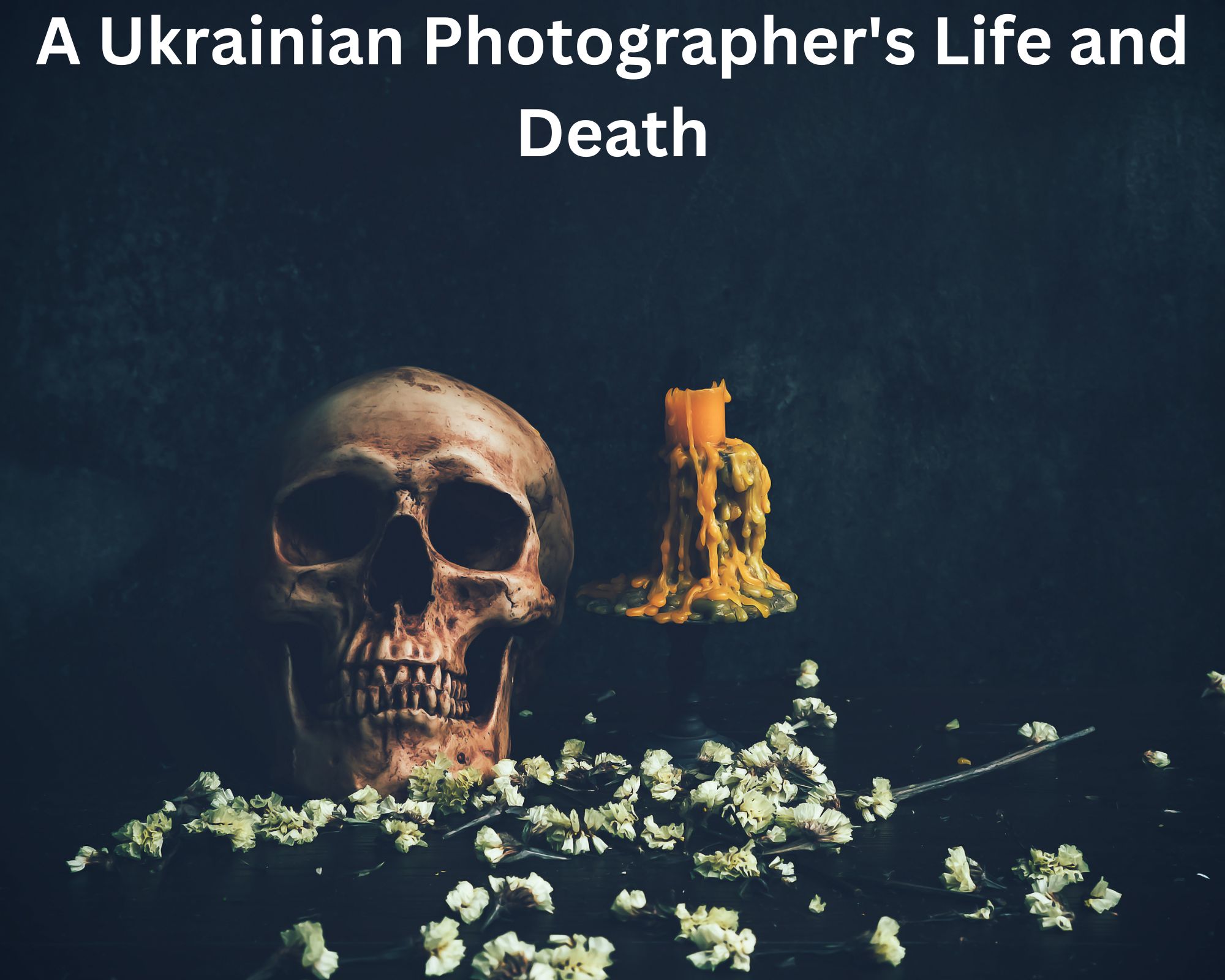Summary:
-
At a military base outside of Kyiv, early-forties Ukrainian photojournalist Maksym Levin awoke just before nine.
-
“Be careful” Levin had misplaced a camera drone in a pine forest to the north of Kyiv a few days previously.
-
Levin’s GPS tracker showed him to be in the exact location in the forest—close to Moshchun, a settlement on the banks of the Irpin River—at 6:55 p.m., as night started to fall. “
-
The head of Ukraine’s armed forces, Valerii Zaluzhnyi, had described Moshchun as a “gate for the enemy on the path to the capital.”
-
His car was still in the forest, according to the G.P.S.Yevgeny and Valentina Levin’s parents relocated to a Kyiv suburb in the late ’70s from a place in southern Russia.
At a military base outside of Kyiv, early-forties Ukrainian photojournalist Maksym Levin awoke just before nine. It was March 13, 2022, a Sunday, and day eighteen of the conflict. The ground was lightly dusted with snow as it was a cloudy morning. Russian forces had moved closer to the capital than fifteen miles. Levy looked at his phone. Good morning, kitten,” his lover Zoriana Stelmakh had texted him an hour and a half earlier.
Levin said, “Good morning. Good or bad?
I fell asleep last night. What about you, feline? Have you slept?
“Same, yeah.”
When Levin was on assignment, Stelmakh pledged to check in every three hours. She tracked Levin’s movements in real-time using an app on her phone, and a tracking device put in his Ford Maverick.
Levin texted, “Heading out.” I’ll be offline, I said.
“Be careful”
Levin had misplaced a camera drone in a pine forest to the north of Kyiv a few days previously. Before the battery expired, the drone had sent some low-resolution video showing surface-to-air missile systems. He was optimistic that the drone had detected Russian positions. But Levin was a journalist through and through; he was a Ukrainian first, and he had no qualms about sharing photographs with the soldiers whose lives he had been documenting that could be used strategically. At a media conference, he warned a room full of working journalists, “You should not forget that you are a human being. “Help is available if there is a need.”
Oleksiy Chernyshov, a soldier, volunteered to go into the forest with Levin to retrieve the object. They had been friends since 2013, when Chernyshov and Levin were both photographers, documenting demonstrations on the Maidan. Chernyshov sat in the passenger seat, carrying an AK-74 and wearing military fatigues. Levin attached a blue armband to his black clothing to let Ukrainian soldiers know he was a “friendly” person. He also kept a jerrican of gasoline in the car and carried a Swiss Army knife, helmet, Kevlar jacket, and headlamp.
Stelmakh observed Levin and Chernyshov travelling west on a country road that cut through the woodland at 12:51 PM. When the car came to a stop, they were travelling at a speed of slightly under twenty miles per hour. Stelmakh texted Levin a lot throughout the following six hours. Levin’s GPS tracker showed him to be in the exact location in the forest—close to Moshchun, a settlement on the banks of the Irpin River—at 6:55 p.m., as night started to fall. “Kitty,” wrote Stelmakh. She texted another heart emoji at eleven.
The head of Ukraine’s armed forces, Valerii Zaluzhnyi, had described Moshchun as a “gate for the enemy on the path to the capital.” About the time Levin vanished, Soviet forces encircled the settlement and shelled and bombed it heavily from the air. Every third dwelling was demolished, making two of them. The few remaining people lived in their root cellars and only came outside to hunt for food, as almost everyone else had departed the area. Oleksandr Vdovychenko, the brigade commander in defending Moshchun, notified Zaluzhnyi that he lacked the “strength and means” to retain the village. One of his subordinates later told the Washington Post that everything was dropping right next to them within a single day, “I felt like I got hit with a hammer on my head at least eight times. Several men struggled mentally.
Levin received texts from Stelmakh every couple of hours. On March 15, she wrote, “Please be alive.” Don’t leave me, please.
The signal in Moshchun was detected on Levin’s phone the following day. His car was still in the forest, according to the G.P.S.
Yevgeny and Valentina Levin’s parents relocated to a Kyiv suburb in the late ’70s from a place in southern Russia. After three years in Ukraine, they welcomed their second kid, Maksym, who they already had along with their two-year-old son Alexander. Alexander, now 46 years old, recently revealed to me that his parents still hadn’t chosen a name when driving to the hospital. I suggested calling him Maks. The family spoke Russian at home and frequently travelled to Russia to visit their numerous surviving relatives.
Yevgeny, an engineer, was sent to Vietnam when Levin was five years old. Before returning to Ukraine, the family spent two years in a Russian community there. Yevgeny frequently travelled for business. On a trip to Poland a few years later, he bought Levin a rangefinder camera dubbed the “Kyiv.” Levin knew a man whose friend’s father, a sports photographer, always brought trinkets from far-off locales like Toronto and Tokyo. Years later, Levin told the online journal LensCulture, “I never aspired to be a combat photographer.” “The main goal was to travel the world and meet new people.” To “please my father,” Levin enrolled in a computer science programme at a university in his late teens. He returned to photography after receiving his degree, “perhaps more out of vanity than for peace in the world.”

